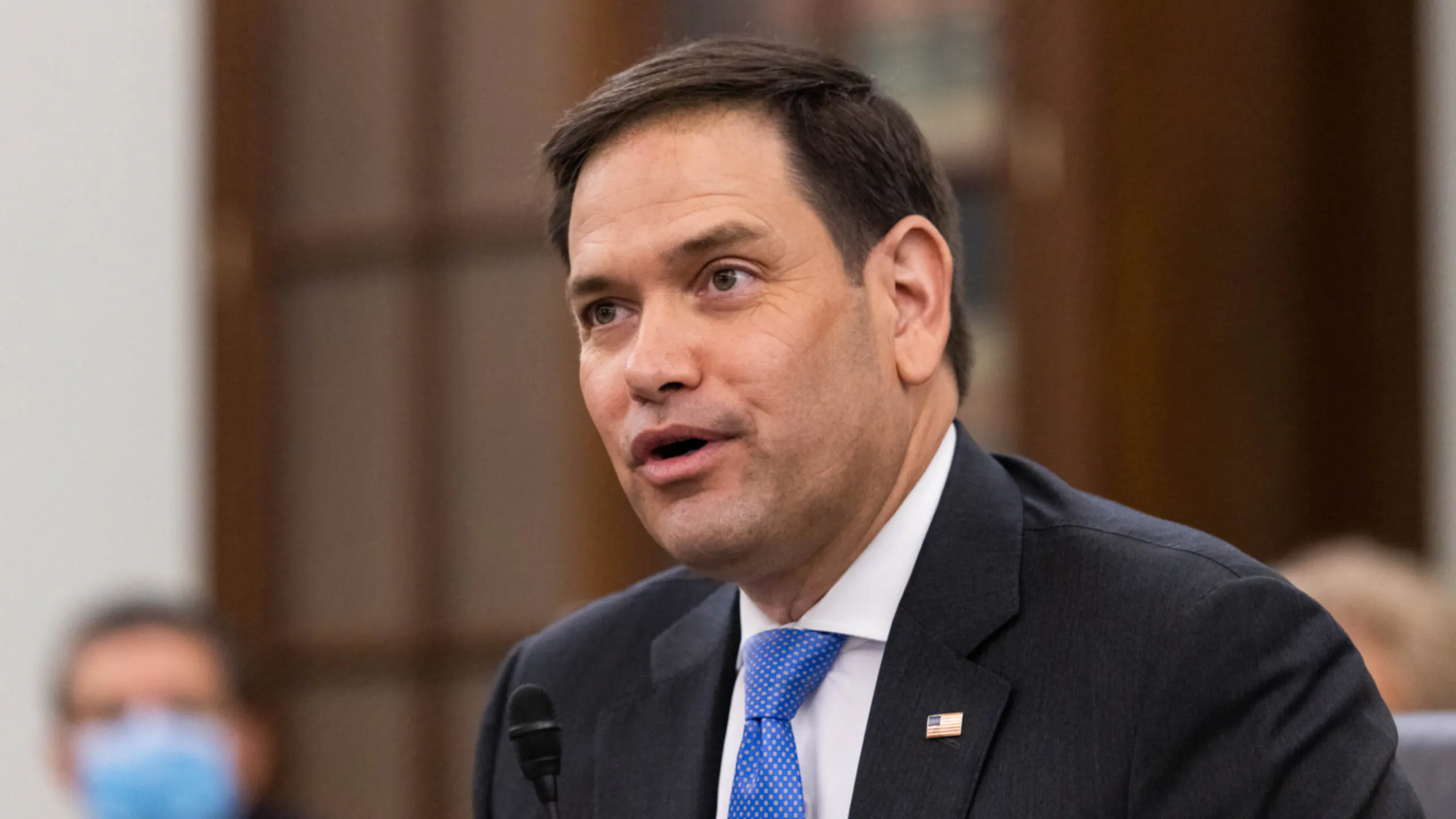On Sunday, Sen. Marco Rubio (R-FL) appeared on CBS’ “Face the Nation” with host Margaret Brennan to discuss the Russia/Ukraine tensions, as well as the China threat, among other topics.
After noting that the “mostly Muslim minority” prisoners in the detainment camps in communist China are subject to forced abortions, rape, torture, and labor, Brennan asked Rubio about the ability of the United States to “restrict imports made by forced labor.”
“But is it really possible to clean up the supply chain because China is such an economic behemoth here?” Brenna asked.
Rubio replied, first noting that the U.S. must become more self-reliant as it pertains to manufacturing and goods, as those things can be disrupted by natural occurrences or for deliberate purposes.
He continued by bringing up the slave labor bill that was passed:
We passed a bill that says if something is made in a factory in that part of China, we are going to presume it’s made by slave labor and not allow it into the country unless companies can prove that that’s not the case.
On December 23, President Biden signed the “Uyghur Forced Labor Prevention Act” into law, which was introduced by Rubio and Senator Jeff Merkley (D-OR).
Brennan asked which companies have seemingly benefited from labor out of Xinjiang, and Rubio pointed to Nike “and others that have definitely benefited from the supply chain that’s located in that part of the world.”
“And so we saw the lobbying efforts of Apple, of Nike and others … arguing that this would raise the costs for consumers,” Rubio said. “But ultimately, it’s slave labor, and it’s a horrific genocide.”
When Brennan noted that Tesla has opened a showroom in Xinjiang, Rubio responded that he understands the motive regarding profit, “but our agenda has to be the national interest of the United States, not to mention what’s right or wrong in the world.”
.@SenRubioPress warns that dependence on foreign supply chains “especially those located in a place like China,” poses the risk of an economic crisis. WATCH –> pic.twitter.com/XawO6l0BvB
— Face The Nation (@FaceTheNation) February 6, 2022
TRANSCRIPT:
BRENNAN: Well, and as I mentioned, this alliance between Russia and China seems to be building. On China itself, more than one million mostly Muslim minorities are in detention camps in China. According to the State Department, they’re subject to forced sterilization, abortions, rape, torture, forced labor, restrictions on prayer, restrictions on movement. I know you’ve been working to try to restrict imports made by forced labor inside these camps. But is it really possible to clean up the supply chain because China is such an economic behemoth here?
RUBIO: Well, a couple of things that we need to do, the first is, we need to do this no matter what, because this country has to be a country that makes things again. If we’ve learned anything over the last couple of years [it’s] that you have to have a manufacturing and industrial capability, and you can’t be dependent on foreign supply chains entirely, especially those located in a place like China because of a pandemic, a war, or out of leverage against us. You could be cut off and create an economic crisis. But the second is, we’ve passed that bill. We passed a bill that says if something is made in a factory in that part of China, we are going to presume it’s made by slave labor and not allow it into the country unless companies can prove that that’s not the case…
BRENNAN: Which companies are the worst abusers on this front?
RUBIO: I think there are many American companies like Nike and others that have definitely benefited from the supply chain that’s located in that part of the world. And the list could be even more extensive than that because there are people that are buying from subcontractors. Many of them know they’re sourcing material from that area, but they have continued or continue to allow it to happen. And so we saw the lobbying efforts of Apple, of Nike and others … arguing that this would raise the costs for consumers. But ultimately, it’s slave labor.
BRENNAN: Yeah.
RUBIO: And it’s a horrific genocide.
BRENNAN: Well, and Tesla just opened a showroom in the province where these camps are located. I mean, American businesses still seem to be more than willing to try to tap the Chinese market.
RUBIO: Well, it’s one of the largest markets, the second largest market in the world, and in some industries, the largest. I understand the profit motive behind it. And that’s fine. But I understand that with their view of it, that’s their agenda. But our agenda has to be the national interest of the United States, not to mention what’s right or wrong in the world. And ultimately, it’s important for policy leaders to push back and say, look, we want American companies to be prosperous and do well, but not in ways that undermine American national security interests, which in the case of China, they are.

.png)
.png)

